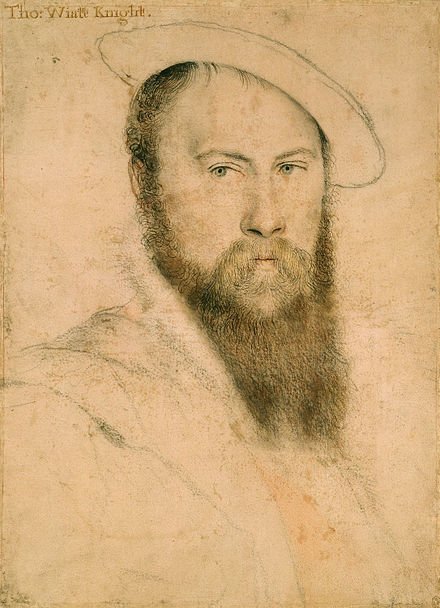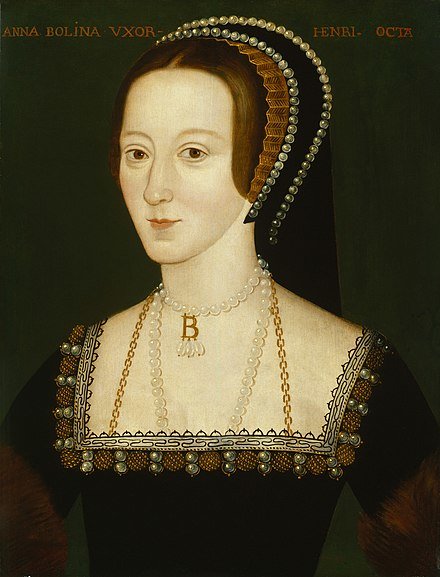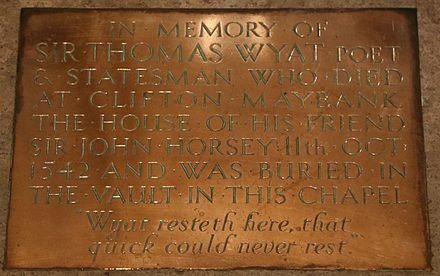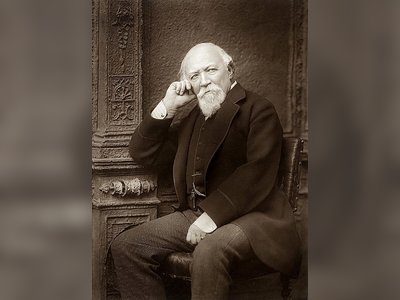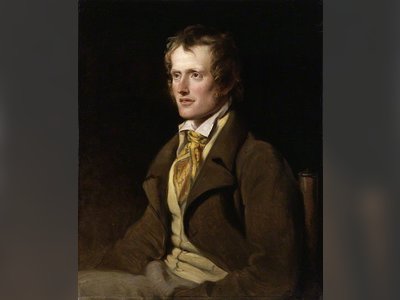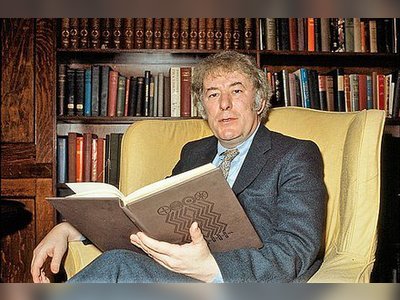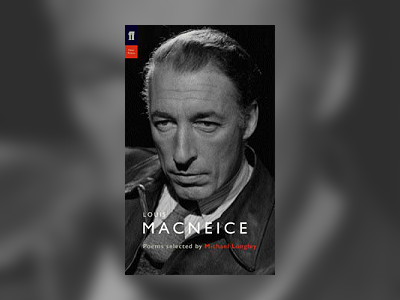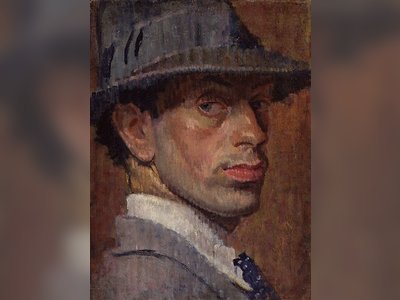British Heritage
Remember, Cherish, Learn.
beta
Thomas Wyatt - A Miscellany of Sonnets, 1530s
The British Heritage of Sir Thomas Wyatt: Poetic Innovations and Contributions.
Sir Thomas Wyatt (1503-1542) stands as an iconic figure in the rich tapestry of English literature, credited with introducing the sonnet to English poetry during the 16th century. His invaluable contribution to the evolution of English literature and his political roles have not only coloured the pages of British heritage but also led to a lasting impact on the global literary community. This article delves into the life, work, and legacy of Sir Thomas Wyatt, offering an in-depth exploration of his multifaceted personality and his artistic and political endeavours.
Born in 1503 at Allington Castle, Kent, Wyatt was the offspring of a family with a strong political background, which had previously aligned with the Lancastrian side in the Wars of Roses. His father, Henry Wyatt, had a significant influence on his life, guiding his political path from an early age. Following his education at St John's College, Cambridge, Wyatt stepped into the world of politics, taking after his father in serving the court of Henry VIII.
Over the years, Wyatt undertook many important diplomatic missions, demonstrating his capacity as a skilled negotiator and a loyal servant to the king. However, the capriciousness of the royal court saw him fall in and out of favour, resulting in periods of imprisonment and exonerations. Despite the tumultuous nature of his political career, Wyatt's diplomatic work, particularly his tenure as an ambassador in the service of Henry VIII, left an indelible mark on the politics of the time.
Parallel to his political pursuits, Wyatt was actively engaged in the literary world. In an era when the printing press had just started to revolutionise the spread of knowledge and ideas, Wyatt was at the forefront of a nascent English literary renaissance. He is renowned for introducing the sonnet into English literature, an Italian form that had been popularised by Petrarch.
Wyatt's sonnets and poems, while not published under his name during his lifetime, were widely circulated and appreciated in courtly circles. His 96 love poems, noted for their emotional depth and innovative form, were published posthumously in Tottel's Miscellany in 1557, nearly 15 years after his death. Out of these, the most noteworthy were his thirty-one sonnets which were the first of their kind in English.
Wyatt did not merely translate the Petrarchan sonnet; he transformed it, demonstrating his creative and linguistic prowess. He adopted the Petrarchan octave structure, but he diverged from the traditional sestet scheme, often preferring cddc ee, contributing a unique English flair to the sonnet structure.
Beyond sonnets, Wyatt's poetic contributions encompassed a broad spectrum of forms. He experimented with the rondeau, epigrams, terza rima, ottava rima songs, satires, and an array of other forms, demonstrating his versatility and mastery over the language. His work remains a testament to the linguistic creativity and cultural vitality of the 16th century, bridging the gap between the Medieval and the modern in English literature.
Wyatt's personal life was as eventful as his professional pursuits. He married Elizabeth Brooke in 1520 and they had a son, Thomas, who would later lead Wyatt's rebellion many years after his father's death. However, their marriage was marred by infidelity, leading to a separation. Thereafter, Wyatt had a long-standing relationship with Elizabeth Darrell, who bore him three sons.
His final years saw him return to the favour of the King, culminating in a full pardon and restoration to his previous position. Despite rumours about Wyatt's wife possibly becoming Henry VIII's next wife, Wyatt fell ill and died on 11 October 1542 at the age of 39. He is buried in Sherborne Abbey.
Wyatt's legacy lies not just in the transformative effect he had on English poetry but also in his influence on the broader literary and political landscape of the time. His experimentation with form and language set the stage for the evolution of English literature, paving the way for later poets like Shakespeare to further refine the English sonnet.
While critical opinions about Wyatt's work have varied over the centuries, his contributions to English poetry remain indisputable. He is often hailed as "the father of the Drab Age" and "the father of English poetry". His work has inspired and continues to inspire numerous poets, thus affirming his enduring legacy.
In the broader sweep of history, Wyatt's lineage has also proven influential. His only legitimate son, Sir Thomas Wyatt the Younger, led a significant, if unsuccessful, rebellion against Mary I, in favour of the Protestant-minded Elizabeth, the daughter of Anne Boleyn. His great-grandson, Sir Francis Wyatt, served as the governor of the Virginia Colony.
Thus, Sir Thomas Wyatt's contributions to British heritage extend beyond his poetry and political service. His influence continues to resonate in English literature, British history, and global cultural memory, marking him as a pivotal figure in shaping the cultural heritage of Britain.
Biography and Political Career
Born in 1503 at Allington Castle, Kent, Wyatt was the offspring of a family with a strong political background, which had previously aligned with the Lancastrian side in the Wars of Roses. His father, Henry Wyatt, had a significant influence on his life, guiding his political path from an early age. Following his education at St John's College, Cambridge, Wyatt stepped into the world of politics, taking after his father in serving the court of Henry VIII.
Over the years, Wyatt undertook many important diplomatic missions, demonstrating his capacity as a skilled negotiator and a loyal servant to the king. However, the capriciousness of the royal court saw him fall in and out of favour, resulting in periods of imprisonment and exonerations. Despite the tumultuous nature of his political career, Wyatt's diplomatic work, particularly his tenure as an ambassador in the service of Henry VIII, left an indelible mark on the politics of the time.
Poetic Innovation and Achievements
Parallel to his political pursuits, Wyatt was actively engaged in the literary world. In an era when the printing press had just started to revolutionise the spread of knowledge and ideas, Wyatt was at the forefront of a nascent English literary renaissance. He is renowned for introducing the sonnet into English literature, an Italian form that had been popularised by Petrarch.
Wyatt's sonnets and poems, while not published under his name during his lifetime, were widely circulated and appreciated in courtly circles. His 96 love poems, noted for their emotional depth and innovative form, were published posthumously in Tottel's Miscellany in 1557, nearly 15 years after his death. Out of these, the most noteworthy were his thirty-one sonnets which were the first of their kind in English.
Wyatt did not merely translate the Petrarchan sonnet; he transformed it, demonstrating his creative and linguistic prowess. He adopted the Petrarchan octave structure, but he diverged from the traditional sestet scheme, often preferring cddc ee, contributing a unique English flair to the sonnet structure.
Beyond sonnets, Wyatt's poetic contributions encompassed a broad spectrum of forms. He experimented with the rondeau, epigrams, terza rima, ottava rima songs, satires, and an array of other forms, demonstrating his versatility and mastery over the language. His work remains a testament to the linguistic creativity and cultural vitality of the 16th century, bridging the gap between the Medieval and the modern in English literature.
Personal Life and Final Years
Wyatt's personal life was as eventful as his professional pursuits. He married Elizabeth Brooke in 1520 and they had a son, Thomas, who would later lead Wyatt's rebellion many years after his father's death. However, their marriage was marred by infidelity, leading to a separation. Thereafter, Wyatt had a long-standing relationship with Elizabeth Darrell, who bore him three sons.
His final years saw him return to the favour of the King, culminating in a full pardon and restoration to his previous position. Despite rumours about Wyatt's wife possibly becoming Henry VIII's next wife, Wyatt fell ill and died on 11 October 1542 at the age of 39. He is buried in Sherborne Abbey.
Legacy and Impact
Wyatt's legacy lies not just in the transformative effect he had on English poetry but also in his influence on the broader literary and political landscape of the time. His experimentation with form and language set the stage for the evolution of English literature, paving the way for later poets like Shakespeare to further refine the English sonnet.
While critical opinions about Wyatt's work have varied over the centuries, his contributions to English poetry remain indisputable. He is often hailed as "the father of the Drab Age" and "the father of English poetry". His work has inspired and continues to inspire numerous poets, thus affirming his enduring legacy.
In the broader sweep of history, Wyatt's lineage has also proven influential. His only legitimate son, Sir Thomas Wyatt the Younger, led a significant, if unsuccessful, rebellion against Mary I, in favour of the Protestant-minded Elizabeth, the daughter of Anne Boleyn. His great-grandson, Sir Francis Wyatt, served as the governor of the Virginia Colony.
Thus, Sir Thomas Wyatt's contributions to British heritage extend beyond his poetry and political service. His influence continues to resonate in English literature, British history, and global cultural memory, marking him as a pivotal figure in shaping the cultural heritage of Britain.
- Thomas Wyatt (poet)en.wikipedia.org
